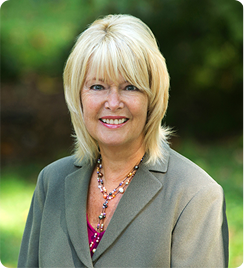
So as I approach turning 70, I’m somewhat of a mess. You see my mother had a massive stroke on her 70th birthday and was paralyzed in a wheelchair for ten plus years. Her life changed on a dime and my father’s too. For he became her caregiver.
As a result I began to appreciate my ability to walk, something I had taken for granted. And also having two arms that functioned. I started walking every day and being mindful of accessibility, which was seriously lacking back then. My mother had her mind, but not her body. I wondered which was worse to lose.
When my father died, my mother moved into a nursing home. She chose not to move into my home in Virginia, even though I constructed accommodations. As the only child I became an executive caretaker while the “home” did the heavy lifting. Her life became very limited.
But am I my mother at 70? Is it ok to carve out a different path? I no longer walk daily and my diet is far from perfect. But my stress level has improved since retiring as a psychotherapist. I have my own part-time coaching business that brings me great satisfaction. I have a loving husband who takes good care of me and we are designing a great life.
One uncertain part for me is that my husband is 86 and it’s unknown how long we will have together. He is healthier than I and takes care of himself, but you never know these things. We all have an expiration date. Uncertainty is the norm. The life I had before is gone and the one I have now will not last forever. Change is the rule. And for a control freak like me, I don’t like to acknowledge that.
But here I am, thinking about my 70th birthday. I want to make it different than my mother’s, so I’ve planned a trip in Polynesia on a boat. Could I have gone any further or exotic? Yet that is what I enjoy, new sights, new cultures, water. This is a long term dream and I’m making it come true.
I actually have had a few dreams that came true. Always wanted to see Machu Picchu and did that for my retirement present. Always wanted to help the less fortunate and that’s been most of my career. I wanted to have biological and adopted children and did that. I wanted to see Washington DC and I’ve lived here for 40+ years. I wanted to study, live and work abroad and I’ve done that. I wanted to see the world and I’m progressing on that. I wanted to use my Spanish language skills and I do that. I wanted to give back and I do that. I wanted to winter in hot spots and I’m doing that. I wanted to live by the water and I’m renting that. I wanted to continuously learn and I do that.
So what does it mean to be 70? I can still do whatever I want. There are few restrictions. My feet and knees hurt, but I can hike for miles. I can put more effort into losing weight, eating healthy and being more active. I can make room for that. My mind is active.
Being 70, healthy and financially stable means I can design my next chapters. I can work as I want. I can coach, love my family, write a book, become an artist, create some projects. There are new interests driving me to explore.
While I’m living my ideal life, some things are missing. I have regrets and sadness regarding some loved ones. They struggle more than I’d hope. My learning is to love them where they are and work at adjusting my worries and expectations. I can’t control anyone but myself.
So I will stop comparing and be grateful for what I have. That’s it, be grateful for the joy and meaning that color my life. I have family and friends, health, a purpose and can create more. Anything is possible.
“God’s not done with me yet”
Jesse Jackson
I will continue to learn, grow and improve. I will be courageous and live to the last breath. I will be good to people and help them as I’m able. I will be proud of myself. I will get off my duff and be active and alive. I will stay hopeful and work to better the world.
Ask yourself:
What makes your ideal life?
What is being vs doing?
What are your life lessons?
What do you want to change, keep, let go of?
Giddy up and see you on the path!










